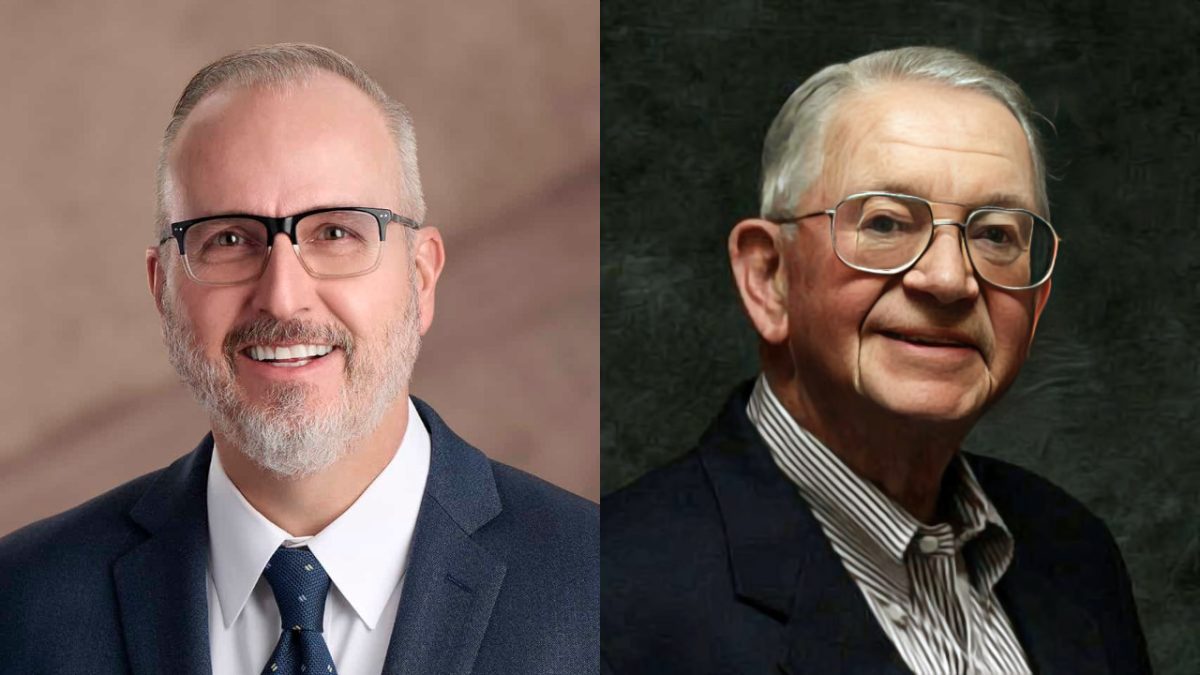A Conversation with IFF President Ron Nate & Tea Party Bob
Podcast Notes by Bob Neugebauer
In a recent episode of my Idaho Pulse podcast, I spoke with Idaho Freedom Foundation President Ron Nate about a range of legislative proposals and spending bills currently under debate in the Idaho State Capitol. Throughout our conversation, we focused on what appears to be a persistent inconsistency in how the Legislature approaches accountability—particularly when comparing a billion-dollar Medicaid program to a smaller, 50 -million-dollar school choice initiative.
Medicaid Expansion Reform
One of our primary discussions centered on Medicaid expansion, which has grown far beyond its original projections. When Idaho voters approved expansion, the cost was estimated at roughly 400 million dollars, buoyed by a purported 90% federal funding commitment. Yet, as Ron noted, actual spending has now climbed to nearly 1.4 billion dollars. Contributing factors include broader enrollments, higher costs per recipient, and what both Ron and I see as insufficient oversight in verifying eligibility.
A newly proposed Medicaid reform bill in the House aims to curb these spiraling expenses by introducing stricter work requirements for able-bodied adults and by reducing improper payments. Should these provisions fail, the proposal threatens to repeal Medicaid expansion entirely. Supporters argue this step is essential for maintaining fiscal discipline, while detractors fear that too many individuals—who genuinely need assistance—might lose coverage if they cannot meet the work or volunteer criteria. From my perspective, and Ron’s as well, the underlying concern is that large-scale social programs face comparatively minimal scrutiny even as their budgets quadruple in just a few years.
In my view, if a private-sector initiative experienced a jump of nearly a billion dollars in its budget without thorough checks, it would likely face intense backlash. Idaho’s own government, however, often appears more comfortable sustaining cost overruns—even when taxpayer dollars fund them. Ron pointed out that the pandemic’s inflow of federal money, plus expansions justified as “temporary,” has injected vast sums into the state budget, making rigorous oversight all the more critical.
The School Choice Debate
While the House wrestled with Medicaid expansion, the Senate turned its attention to House Bill 93, a school choice proposal costing just 50 million dollars—trivial compared to Idaho’s overall education budget. Yet, legislators devoted considerable energy to questioning the “accountability” of these funds. Critics demanded stringent checks on how parents and private institutions spend the allocated money, citing fears of mismanagement or misuse.
Ron and I found this discrepancy telling. Legislators who show minimal interest in reining in the billion-dollar Medicaid program appear quick to raise flags about oversight for a comparatively small education tax credit. I described it as a “fascinating dichotomy”: large government programs often evade detailed scrutiny, while smaller, freedom-oriented measures face prolonged debate over accountability.
Other Legislative Highlights
In addition to Medicaid and school choice, our conversation touched on several other issues shaping Idaho’s legislative session:
- Convention of States: Ron expressed concerns about Idaho potentially joining a call for a Convention of States. Although supporters tout benefits such as term limits or a federal balanced budget amendment, we agreed that such a convention could also open the Constitution to unpredictable amendments, including those that undermine existing freedoms.
- Grocery Tax and Property Tax Relief: Both of us lamented that repealing the grocery tax remains elusive, with some legislators instead favoring incremental credits. Similar half-measures often surface around property tax relief. Despite ongoing promises for genuine tax cuts, multiple proposals have stalled in committee or been pared down, leaving many Idaho households disappointed.
- Long-Term Officeholders: We also discussed how many lawmakers campaign on conservative platforms, only to shift positions under the influence of leadership or the pressure of extended tenures. Ron has observed that holding on to committee roles or leadership tracks can incentivize officials to align with big-budget priorities—a move often at odds with constituents who expect smaller, more accountable government.
Accountability and Voter Engagement
A recurring theme in our exchange is that accountability should be consistent, not selective. If the Legislature insists that smaller programs like school choice meet high standards of oversight, why not apply the same intensity to a sprawling, billion-dollar health program? The debate around Medicaid reflects this disconnect, with a dramatic budget escalation confronting only moderate reform proposals, some of which are met with staunch opposition.
Ron and I both stressed the importance of voter engagement in addressing these contradictions. While candidates frequently assert they want limited government and lower taxes, their actual voting records on issues like Medicaid expansion, school choice, and property tax reform may tell a different story. By scrutinizing their track records—as well as resources like the Idaho Freedom Foundation’s Freedom Index—voters can gain a clearer picture of who genuinely stands for principled governance.
Looking Ahead
As this legislative session unfolds, several questions remain. Will the House’s proposed work requirements and eligibility checks for Medicaid pass into law, or will critics succeed in deflecting these measures? On the education front, will the Senate ultimately balance its demands for accountability on a modest school choice program with more robust scrutiny of high-cost initiatives elsewhere in the budget?
From my perspective, Idahoans stand to benefit if officials adopt a consistent approach: if accountability is essential for smaller initiatives, it should be doubly important for large-scale expenditures. As always, I urge citizens to monitor their representatives’ votes, participate in discussions, and hold leaders responsible for either supporting or hindering genuine reform. Engaged voters, knowledgeable about both the successes and shortfalls of their legislators, are in the best position to guide Idaho’s future toward greater fiscal discipline and individual freedom.



